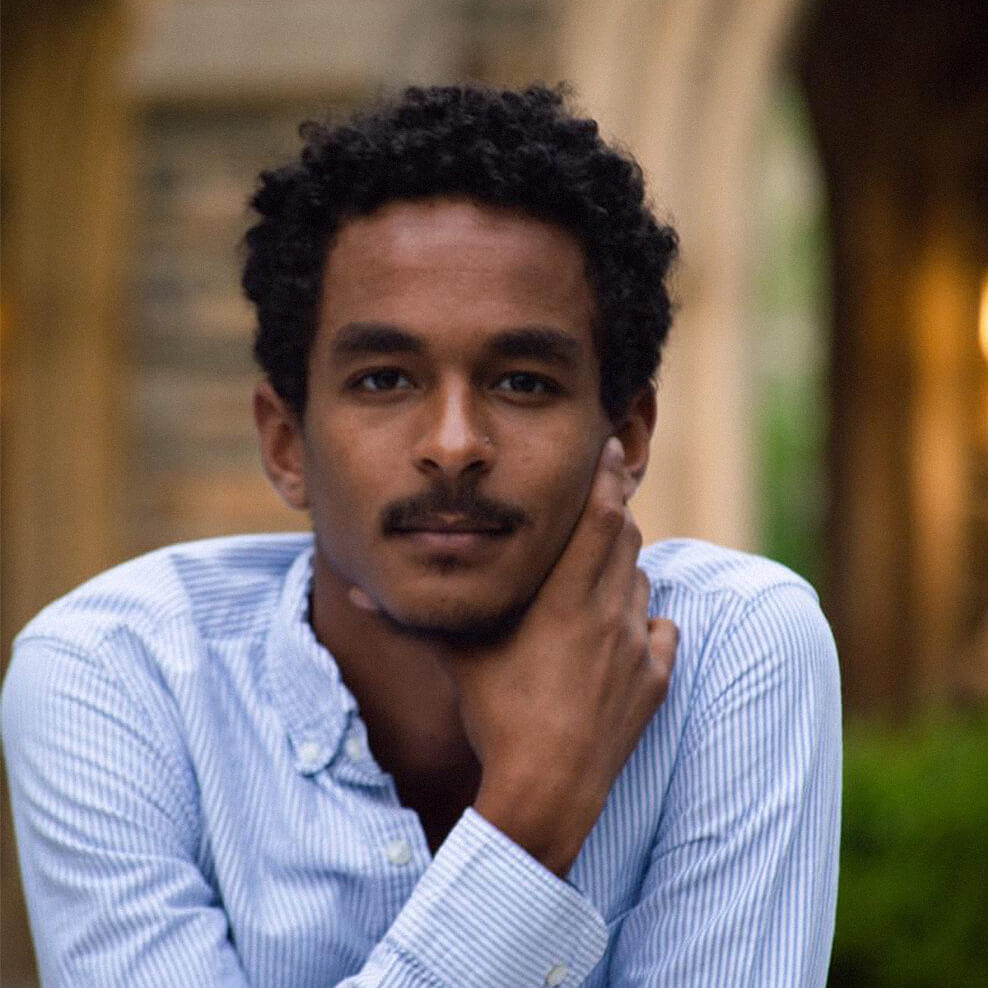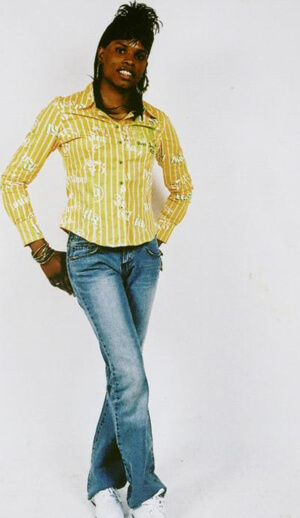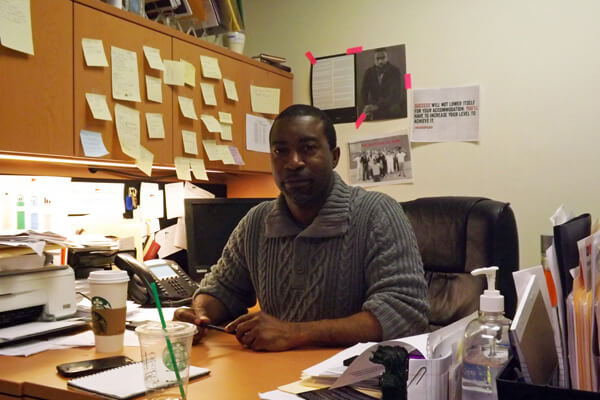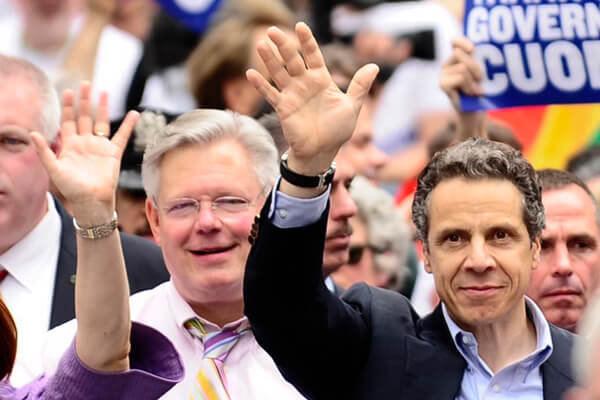As the coronavirus crisis keeps New Yorkers indoors and nearly every public event statewide canceled or postponed, two LGBTQ-focused groups are pushing to keep the queer community’s agenda in front of Albany lawmakers — as the Legislature heads toward the June end of session and reelection bids for the new term beginning January 2021.
Equality New York (EQNY) and the New Pride Agenda (NPA) are both relatively new advocacy efforts — though it would not be fair to say that either is brand new. What is, instead, most striking is that both are aiming for their greatest visibility at a time when visibility is a damned hard goal to realize. But if they are successful, one or both may become household names among folks on the LGBTQ street as well as powerbrokers in the state capital.
EQNY, the older of the two groups, is leading the effort for the first LGBTQI Virtual Day of Action. A follow-up to last year’s Equality & Justice Day in-person advocacy effort, in which EQNY teamed up with the New York Transgender Advocacy Group (NYTAG) to bring 250 activists to Albany, the virtual activism will include a webcast of elected officials’ remarks, an hour of call-in efforts to state senators and assemblymembers, and a series of webinars on critical agenda goals: the repeal of a loitering law, dubbed “Walking While Trans,” which often targets transgender women of color assumed to be soliciting sex work; the implementation of transgender civil rights protections for incarcerated trans folks; the implementation of comprehensive sex education in the schools that takes account of LGBTQ and intersex lives; and the adoption of a bill of rights for LGBTQ people living in long-term care facilities. The day will end with a focus on youth activism.
Out of a long list of policy goals that both EQNY and NPA are pursuing, the four webinar topics are the issues participants will focus on in their calls with legislators. Amanda Babine, who was named EQNY’s executive director earlier this year after two years as policy director at NYTAG, explained that activists in Albany last year pushed at least six issues, but that constrained by having to do phone advocacy the group decided to narrow the list this year. The issues selected, she explained, were the results of collaboration with the nearly five-dozen LGBTQ and allied organizations that are members of EQNY’s coalition.
Among the sponsoring organizations for the May 7 advocacy push is NPA, which focused on several of these goals as well as other items on EQNY’s agenda in a mid-March press release announcing the group’s formal arrival on the scene.
The groups’ cooperation in next month’s advocacy efforts and the likeness in the issues they emphasize inevitably raise the question of what separate roles the two advocacy organization aim to play. Both efforts clearly come in response to the abrupt shuttering of the Empire State Pride Agenda in late 2015. ESPA, with a nearly 25-year history, had achieved marriage equality in 2011 and saw the US Supreme Court extend that right nationwide four years later, but it struggled to pass a transgender civil rights law. In its October Manhattan gala that year, Governor Andrew Cuomo announced new executive regulation that would achieve administratively much, though not all, of what the long-stalled Gender Expression Non-Discrimination Act (GENDA) aimed to do through state law. Barely a month later, ESPA said it was closing its doors.
Criticism of the ESPA decision was quick and harsh. Matt Foreman, a former leader of the group, lamented that it was “an abrogation of a fundamental obligation that an organization has to its constituency… And, it plays into the national narrative that the job is done, and people look to New York…. Millions of dollars were spent on building up this brand, and now they are just throwing it away.” Contrasting the situation here with the aggressive pursuit of a broad array of LGBTQ-focused goals in California, Foreman said New Yorkers would miss the opportunity to advance “lived equality.”
Many seasoned advocates in New York clearly shared Foreman’s view. In 2016, Gabriel Blau, a non-profit strategy consultant with top leadership experience at the Family Equality Council and the Hetrick-Martin Institute, and family law attorney Brian Esser co-founded EQNY, and quickly built an advisory council of roughly two-dozen activists who reflected a broad geographic, racial and ethnic, gender identity, and age diversity. From there, the group forged relationships with the dozens of groups statewide now part of its coalition.
As Babine describes the group’s mission, it is to “build power” by leveraging the experience and strengths of its coalition members, acting as a “trusted, connected” convener and networker. Until her hiring, most of EQNY’s efforts had been carried out in a volunteer fashion.
NPA got its start later, informally more than a year ago. Its co-chairs are Cecilia Gentili, who formerly held a senior policy position at Gay Men’s Health Crisis and is on the board of the Translatina Network, and Doug Wirth, the CEO of Amida Care, a nonprofit health and coordinated care plan for New Yorkers on Medicaid with chronic conditions. Another key player is Cynthia Dames, a longtime government affairs consultant who did lobbying for ESPA on issues including marriage. Dames is currently the group’s project manager as it transitions into a full-fledged staff headed by an executive director.
Significantly, the two organizations are stepping up at a time when LGBTQ wins are once again happening in Albany. Since the Democrats captured the State Senate in November 2018, the victories have included GENDA, a ban on conversion therapy practiced on youth, the barring of gay and transgender “panic defenses” in murder cases, and the legalization of compensated gestational surrogacy.
While people affiliated with both groups have suggested, off the record, distinctions between the two, the similarities in their public postures are more compelling. Leaders affiliated with both emphasize grassroots reach, diversity, and inclusion — all aimed at unleashing the statewide community’s size but also tackling its many unaddressed and divergent needs. Issues of concern to transgender, gender-nonconforming, and intersex New Yorkers are at the fore in a way they never were until the final several years of ESPA’s life, and the social justice and economic inequality realities affecting both communities of color and non-urban New Yorkers are also emphasized. And both EQNY and NPA envision lean staffing rather than the re-creation of a multi-million dollar organization on the scale of the Old Pride Agenda at its zenith.
Babine, looking to the next year or two in EQNY’s life, sees a staff of up to five, including herself, with two people in the city, one in Albany, and the other two in western New York. Dames outlined what may be a shorter-term goal — raising $500,000 to hire a full-time executive director plus two organizers, one in New York City and one upstate.
One difference between the two groups that Babine mentioned was that EQNY has a political action committee, which allows it to make endorsements as well as candidate contributions. For now, the PAC effort remains modest — with a budget of about $10,000, the group this week announced endorsements (all Democrats) in 16 races in the Senate and Assembly combined. Nine are incumbents: out gay Brad Hoylman of Manhattan along with his Senate colleagues Brian Benjamin of Harlem, Julia Salazar of Brooklyn, Jessica Ramos of Queens, and Anna Kaplan of Long Island as well as out gay Harry Bronson of Rochester and his Assembly colleagues Richard Gottfried and Yuh Line Niou of Manhattan and Catalina Cruz of Queens. Among the incumbents, while both Salazar and Niou have opponents in the June 23 primary, Bronson faces a particularly stiff challenge from a party-backed opponent. Kaplan is seeking her first reelection in November from a Long Island district long held by Republicans.
The seven non-incumbent candidates EQNY endorsed are all seeking seats being vacated. Jason Salmon, Elijah Reichline-Melnick, and Kristen Browde hope to replace, respectively, Democratic Senators Velmanette Montgomery of Brooklyn and David Carlucci of Rockland County and Assemblymember David Buchwald of Westchester. In races where Republicans are giving up their seats, Michelle Hinchey, Jeremy Cooney, and Assemblymember Sean Ryan are running to succeed, respectively, Senators George Amedore in the capital district, Joe Robach in Rochester, and Chris Jacobs in Buffalo. Claudia Braymer hopes to succeed GOP Assemblymember Dan Stec in the Saratoga region. Browde is an out transgender attorney long active in LGBTQ rights, while Salmon snagged ESPA’s support against an out gay competitor, Jabari Brisport, as he did with Brooklyn’s Lambda Independent Democrats.
Though EQNY has begun positioning itself in the world of Albany PACs, even that distinction with NPA may be short-lived. In an interview with Gay City News, Dames talked about the possibility in the future of “a very focused PAC” which is much the way Babine spoke of her group’s effort.
Both EQNY and NPA are showing a commitment to developing young leadership. Babine graduated from college in 2010 and earned her master’s in social work and public policy from Columbia in 2012. Ahmed Mohamed, NPA’s first hire as community organizer, was doing graduate work at NYU after earning his bachelor’s degree at Duke when he took the post. Jason Walker, formerly of VOCAL-NY, has also joined NPA as a Civic Engagement and Public Education Project consultant.
If EQNY emphasizes the strength of its networking with coalition partners and its annual Albany advocacy day as well as its PAC efforts, NPA has been visible in recent weeks in its civic engagement programming — all virtual formats focused on COVID-19: on April 9, examining vulnerable communities including those living with HIV, seniors, and folks who use drugs; on April 16, discussing the virus’ impact on youth and young adults; and on April 23, talking about sex and sex work in the midst of a pandemic and a crashing economy.
It’s unclear that what we’ve seen to date from these two groups offers a clear roadmap to where they might diverge or coalesce in the future. Their aims and styles seem very similar, and their advisory boards are full of activists who have all worked together on many initiatives in the past. For now, New York queers eager to see the arc bend further may simply be happy to see smart, committed folks putting their shoulders to the wheel.
To sign up for the Gay City News email newsletter, visit gaycitynews.com/newsletter.



































